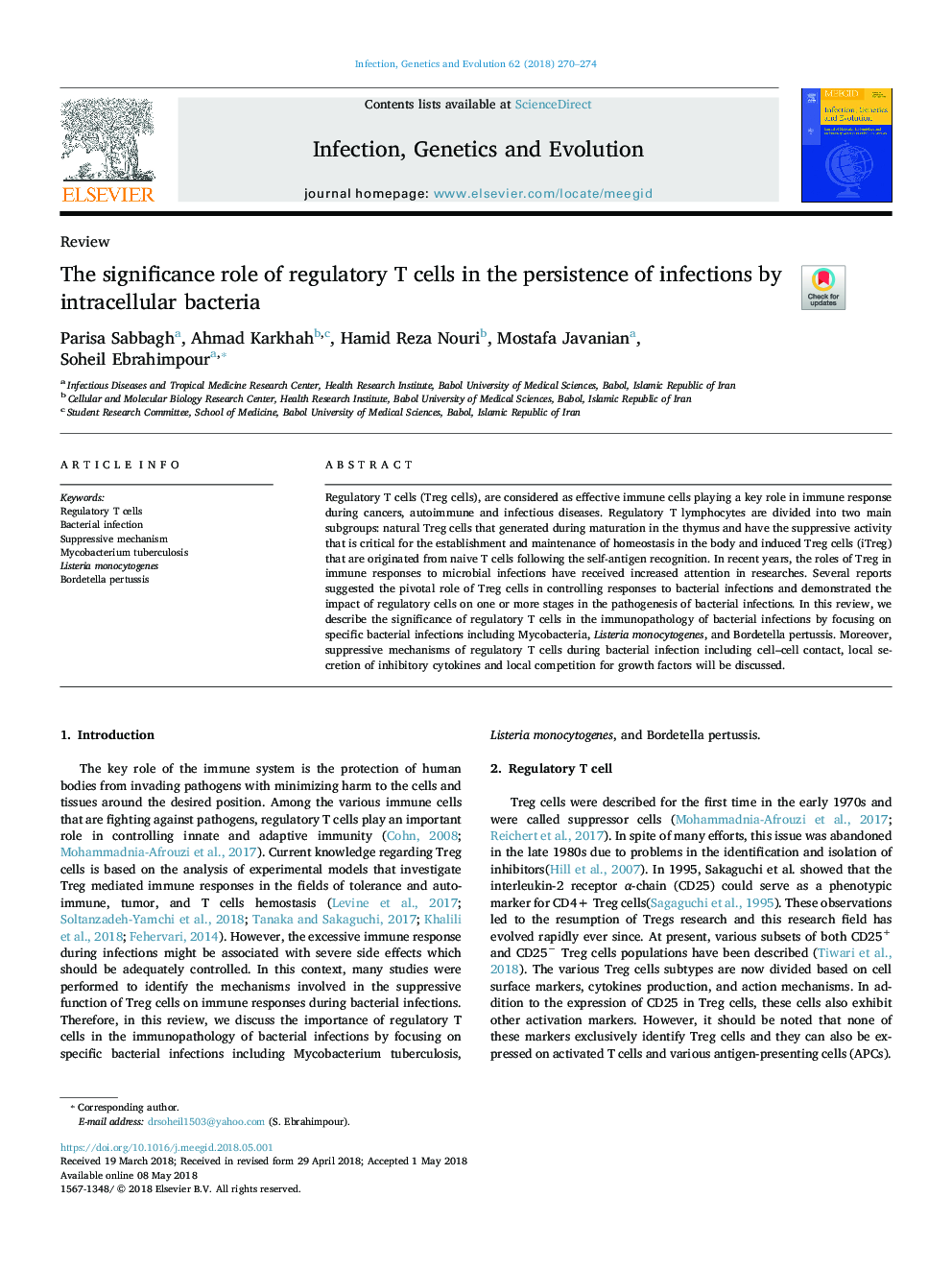| کد مقاله | کد نشریه | سال انتشار | مقاله انگلیسی | نسخه تمام متن |
|---|---|---|---|---|
| 8646716 | 1570141 | 2018 | 5 صفحه PDF | دانلود رایگان |
عنوان انگلیسی مقاله ISI
The significance role of regulatory T cells in the persistence of infections by intracellular bacteria
دانلود مقاله + سفارش ترجمه
دانلود مقاله ISI انگلیسی
رایگان برای ایرانیان
کلمات کلیدی
موضوعات مرتبط
علوم زیستی و بیوفناوری
علوم کشاورزی و بیولوژیک
بوم شناسی، تکامل، رفتار و سامانه شناسی
پیش نمایش صفحه اول مقاله

چکیده انگلیسی
Regulatory T cells (Treg cells), are considered as effective immune cells playing a key role in immune response during cancers, autoimmune and infectious diseases. Regulatory T lymphocytes are divided into two main subgroups: natural Treg cells that generated during maturation in the thymus and have the suppressive activity that is critical for the establishment and maintenance of homeostasis in the body and induced Treg cells (iTreg) that are originated from naive T cells following the self-antigen recognition. In recent years, the roles of Treg in immune responses to microbial infections have received increased attention in researches. Several reports suggested the pivotal role of Treg cells in controlling responses to bacterial infections and demonstrated the impact of regulatory cells on one or more stages in the pathogenesis of bacterial infections. In this review, we describe the significance of regulatory T cells in the immunopathology of bacterial infections by focusing on specific bacterial infections including Mycobacteria, Listeria monocytogenes, and Bordetella pertussis. Moreover, suppressive mechanisms of regulatory T cells during bacterial infection including cell-cell contact, local secretion of inhibitory cytokines and local competition for growth factors will be discussed.
ناشر
Database: Elsevier - ScienceDirect (ساینس دایرکت)
Journal: Infection, Genetics and Evolution - Volume 62, August 2018, Pages 270-274
Journal: Infection, Genetics and Evolution - Volume 62, August 2018, Pages 270-274
نویسندگان
Parisa Sabbagh, Ahmad Karkhah, Hamid Reza Nouri, Mostafa Javanian, Soheil Ebrahimpour,